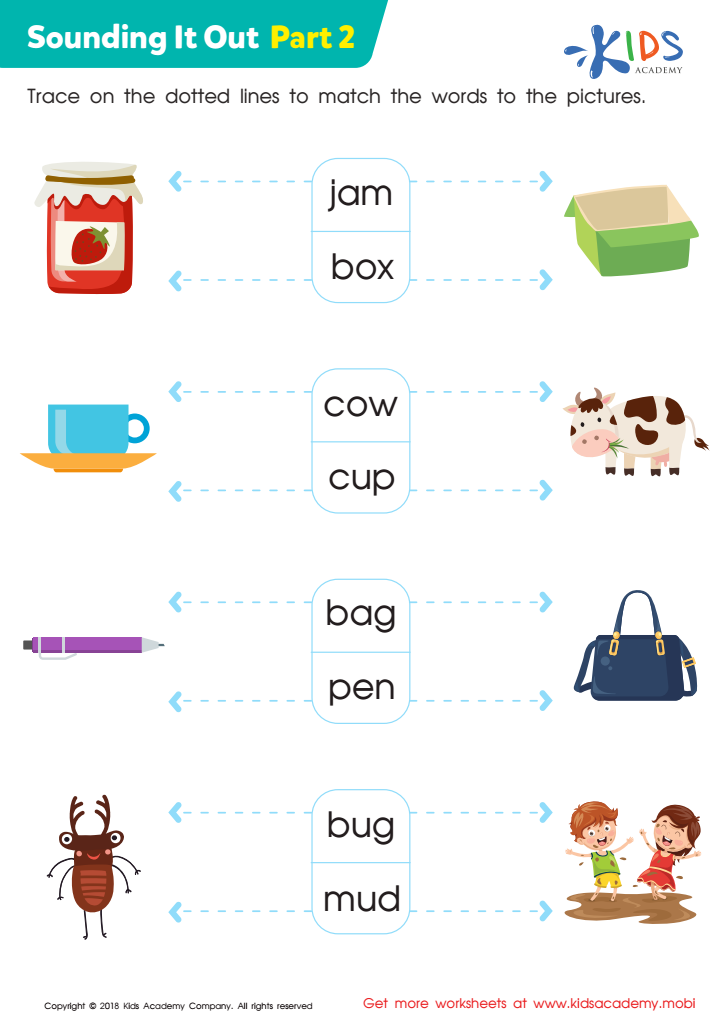Sound-letter recognition Worksheets for Kids
1 filtered results
-
From - To


Sounding it Out: Part 2 Worksheet
Question/Answer
Why is the Sound-letter recognition skill important for Kindergarten students?
Sound-letter recognition skill is crucial for Kindergarten students because it lays the foundation for reading and writing. By associating sounds with letters, children begin to decode words, enhancing their ability to read fluently. This foundational skill also aids in spelling and promotes a deeper understanding of language structure, significantly contributing to their overall literacy development.
How does the mastery of the Sound-letter recognition skill affect a student's performance at an early age?
The mastery of sound-letter recognition skill significantly enhances a student's reading abilities at an early age. It lays the foundation for decoding words, which is crucial for reading fluently and comprehensively. Early mastery leads to a stronger vocabulary, better spelling, and improved reading comprehension, positively affecting academic performance and fostering a lifelong love for reading.
What does the Sound-letter recognition skill mean when it comes to Kindergarten Building Vocabulary learning?
Sound-letter recognition skill in Kindergarten Building Vocabulary learning refers to the ability of children to identify and understand the relationship between individual sounds (phonemes) and their corresponding letters or groups of letters (graphemes). This foundational skill is crucial for developing reading and spelling abilities, as it enables children to decode words by sounding them out and blending the sounds together.
 Assign to the classroom
Assign to the classroom












